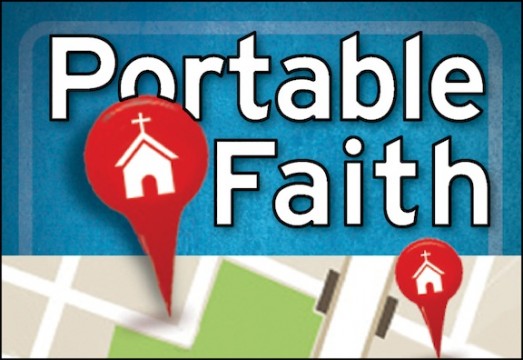Same City Different Points of View: 10 Free Exercises for Churches Who Want To Get To Know Their Communities
Beyond the Building
Today is the final week in a blog series that shared 10 free activities churches can use to take first steps beyond their buildings and build relationship with their surrounding communities.
The other nine exercises are listed here plus the tenth and final exercise is included below:
What If Your Church Burned Down?, Community Stations, Would You Let Your Families Intermix, Walk a Mile In Their Shoes, What We Say In Public, Truth About Money, A Monopoly on Empathy, What Can We Control and How To Declutter Your House
Share this with your people?
Are you are a church leader, person of faith or know others who are? There’s a lot of content here others you know might be able to put to good use. Will you take a second and share the link to this post on your social networks to let church people know about these 10 FREE exercises?
Don’t Let This Be Goodbye
Sad that we’ve reached the end of this series? Remember, there are more than 20 additional exercises and a lot of extra material available in the book that inspired this series, Portable Faith.
There will also be more free materials and web content released in the Portable Faith category so feel free to stop by and grab some new ideas from time to time.
And now, onto our final free exercise.
Same City, Different Points of View
(Please note this is only a portion of a larger exercise that includes set-up and reflection beyond this segment.)
Ask a group to make use of their opinions by responding to the following statements with true or false:
1. _____ Our community is safe.
2. _____ There is ample opportunity in our community to get a job if you work hard at it.
3. _____ Residents of our community have access to acceptable quality health care.
4. _____ Our community streets and public spaces are kept clean and litter free.
5. _____ There is ample opportunity to participate in sports or physical recreation in our community.
6. _____ There is ample opportunity for entertainment in our community.
7. _____ Our community offers children a quality education.
8. _____ Our community has good paying jobs.
9. _____ Our community has an adequate amount of support services (such as police, fire, mental health services, and so on).
10. _____ Police in our community are responsive and fair.
11. _____ Judges in our community are consistent and fair.
12. _____ Residents of our community maintain their homes.
13. _____ Our community is not significantly affected by problems related to substance abuse.
14. _____ Parents in our community are responsible and nurturing.
Now ask them to reflect:
- After marking your answers, share your answers with others in the room. Are there people who live in the same community but answered questions differently from the way you did? Why? If everyone in the room is in general agreement, are there residents in the community who might disagree with all of you? Why?
- Who would be likely to agree with number 10? Who might be likely to disagree with number 10? Why? What about number 5? Number 2?
The point of course is not for everyone to agree (which is likely impossible) or to declare any one perspective “right,” but for participants to increase our awareness that people who are raised in the same city (county, zip code, region etc.) can still emerge with very different experiences.
What about it? Do you think this would generate good discussion or spur important thinking for those in your context? What hurdles do you think people might need to overcome to comfortably participate? In what ways might the group leader have to prompt sensitivity?
A special thanks to all who have provided valuable feedback on these exercises. I appreciate the input and have gleaned many new ideas from your stories and insights.


Ray Hollenbach June 3, 2013 (8:32 pm)
Why not arm church members with this survey and ask them to engage their neighbors with these questions? Allow answers on a 1 – 5 scale, and go door to door. Tabulate the results and report back to the church at large. It might generate some questions from people, “Why does a church care about these questions?” The response of the survey-taker could itself be an outreach: “We love our city, and all areas of life are important to God–and us.”
Eric Haynes June 4, 2013 (6:19 pm)
This may be my favorite exercise yet, and I love Ray’s thoughts as well. I am often surprised by how people around me experience the community in a totally different way than I do.